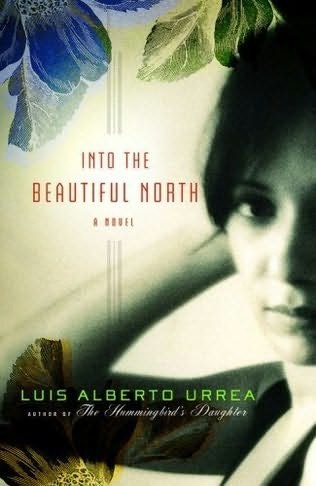The first university-wide common reading program, UA Reads, began after the kickoff event at the UofA Bookstore on Thursday, Nov. 18.
The program encourages university students and faculty to come together and read the novel “”Into the Beautiful North”” by Luis Alberto Urrea.
“”This is going to be the first common reading program that is designed for the entire campus,”” said Kathryn Ortiz, a language, reading and culture graduate student who helped coordinate UA Reads. “”We hope to have the Tucson community join us as well.””
As the program builds steam, UA Reads hopes to reach out to local libraries, Pima Community College and already existing book clubs.
“”I think it’s valuable for us here on campus to share what we’re doing with Tucson,”” said Chris Schafer, the faculty relations program coordinator at the bookstore.
“”Tucson has a vibrant arts scene and a vibrant culture.””
The project is a joint effort between the College of Humanities and UofA Bookstore.
Speaking at the UA Reads launch event, the dean of the College of Humanities, Mary Wildner-Bassett, said that the program will provide ways to “”find common ideas through reading … meet each other and build community bonds that might not have otherwise existed.””
Throughout the course of the year, participants in the program can attend faculty-led discussions and lectures about the book and the issues it raises. The common reading will culminate at the Tucson Festival of Books, which Urrea will attend.
The novel, “”Into the Beautiful North,”” is about a Mexican girl’s road trip through Mexico and into the United States.
“”It was an enjoyable read that makes a few political statements without being overtly political,”” Ortiz said. “”Specifically, it raises issues that have to do with the border. In the novel, the main character is a young woman, about the same age as a UA undergraduate.””
Although UA Reads hopes to facilitate interaction between faculty and students, getting students on board when they’re already reading for classes may prove to be difficult.
“”This is one of the greatest challenges,”” said Schafer. “”How do you motivate students to read the book?””
One way is to select books that don’t read like textbooks.
“”We picked books that will speak to (students),”” Schafer said. “”This book deals with contemporary issues. It’s light reading, a fast read and very funny. It’s not a long book, and it’s not a classic.””
The program also selected 10 Arizona Assurance Scholars to act as ambassadors for UA Reads. Arezu Corella, the assistant director of academic success and achievement selected the students.
“”We were looking for diversity in majors,”” said Corella. “”We don’t just have English majors. I invited students who were interested in serving as ambassadors and talking about the book.””
Bryanda Acuna, a freshman in family studies and human development, is from the border town of Nogales, so the topic is familiar to her.
“”This seems like a good way to interact with other people,”” Acuna said. “”I want to see what they have to bring to the table.””
Jesus Ruiz, a public health junior, also sees this as an interesting opportunity.
“”I don’t actually read that often,”” Ruiz said. “”They asked us to do this for a purpose, and I want to learn something.””
In the future, UA Reads plans to announce their selection over the summer to give would-be participants more time to read the book. But Schafer hopes that this year’s timing won’t stop people from joining in.
“”Even if you don’t read the whole book — even if one chapter inspires you to talk to someone about the issues — we’ve made some progress,”” Schafer said.
— Additional research by Steven Kwan









